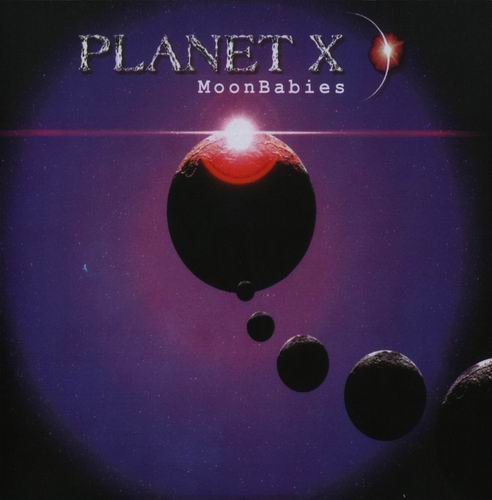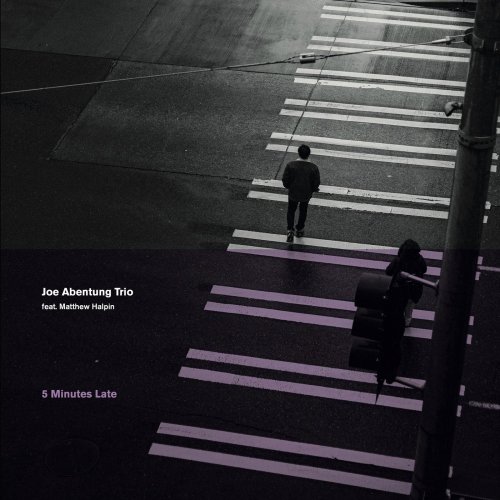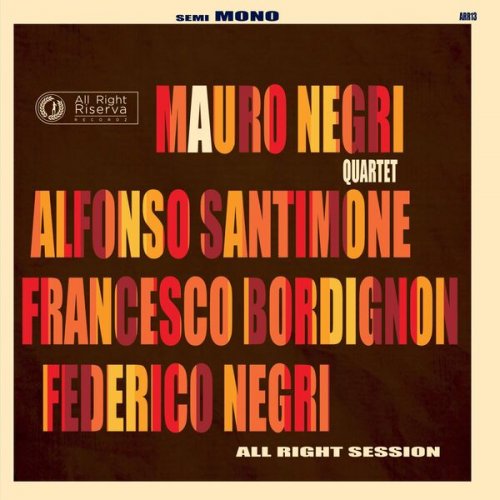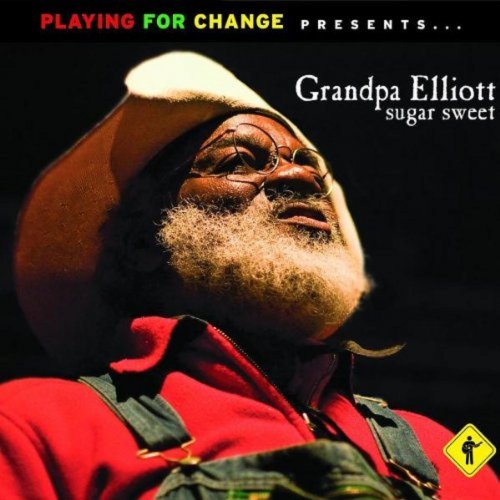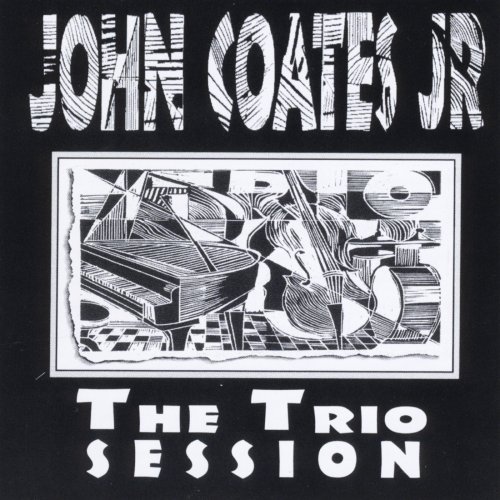Rocco Filippini, Michele Campanella - J.S.Bach: Sei Suites per Violincello Solo BWV 1007-1012 (2013) [Hi-Res]
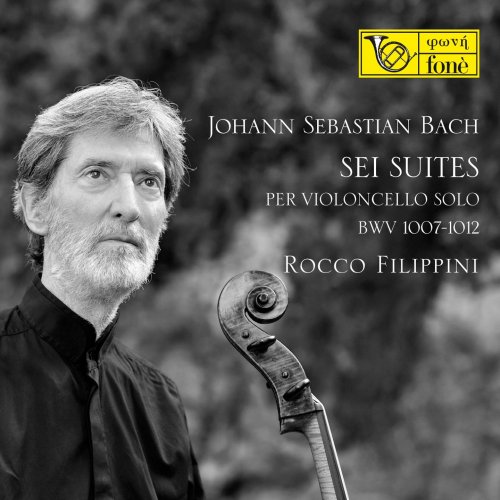
Artist: Rocco Filippini, Michele Campanella
Title: J.S.Bach: Sei Suites per Violincello Solo BWV 1007-1012
Year Of Release: 2013
Label: Fonè Records
Genre: Classical
Quality: flac lossless / flac 24bits - 88.2kHz
Total Time: 02:09:48
Total Size: 607 mb / 2.49 gb
WebSite: Album Preview
TracklistTitle: J.S.Bach: Sei Suites per Violincello Solo BWV 1007-1012
Year Of Release: 2013
Label: Fonè Records
Genre: Classical
Quality: flac lossless / flac 24bits - 88.2kHz
Total Time: 02:09:48
Total Size: 607 mb / 2.49 gb
WebSite: Album Preview
01. Cello Suite No. 1 in G Major, BWV 1007: I. Prélude
02. Cello Suite No. 1 in G Major, BWV 1007: II. Allemande
03. Cello Suite No. 1 in G Major, BWV 1007: III. Courante
04. Cello Suite No. 1 in G Major, BWV 1007: IV. Sarabande
05. Cello Suite No. 1 in G Major, BWV 1007: V. Menuet
06. Cello Suite No. 1 in G Major, BWV 1007: VI. Gigue
07. Cello Suite No. 2 in D Minor, BWV 1008: I. Prélude
08. Cello Suite No. 2 in D Minor, BWV 1008: II. Allemande
09. Cello Suite No. 2 in D Minor, BWV 1008: III. Courante
10. Cello Suite No. 2 in D Minor, BWV 1008: IV. Sarabande
11. Cello Suite No. 2 in D Minor, BWV 1008: V. Menuet
12. Cello Suite No. 2 in D Minor, BWV 1008: VI. Gigue
13. Cello Suite No. 3 in C Major, BWV 1009: I. Prélude
14. Cello Suite No. 3 in C Major, BWV 1009: II. Allemande
15. Cello Suite No. 3 in C Major, BWV 1009: III. Courante
16. Cello Suite No. 3 in C Major, BWV 1009: IV. Sarabande
17. Cello Suite No. 3 in C Major, BWV 1009: V. Bourrée
18. Cello Suite No. 3 in C Major, BWV 1009: VI. Gigue
19. Cello Suite No. 4 in E-Flat Major, BWV 1010: I. Prélude
20. Cello Suite No. 4 in E-Flat Major, BWV 1010: II. Allemande
21. Cello Suite No. 4 in E-Flat Major, BWV 1010: III. Courante
22. Cello Suite No. 4 in E-Flat Major, BWV 1010: IV. Sarabande
23. Cello Suite No. 4 in E-Flat Major, BWV 1010: V. Bourrée
24. Cello Suite No. 4 in E-Flat Major, BWV 1010: VI. Gigue
25. Cello Suite No. 5 in C Minor, BWV 1011: I. Prélude
26. Cello Suite No. 5 in C Minor, BWV 1011: II. Allemande
27. Cello Suite No. 5 in C Minor, BWV 1011: III. Courante
28. Cello Suite No. 5 in C Minor, BWV 1011: IV. Sarabande
29. Cello Suite No. 5 in C Minor, BWV 1011: V. Gavotte
30. Cello Suite No. 5 in C Minor, BWV 1011: VI. Gigue
31. Cello Suite No. 6 in D Major, BWV 1012: I. Prélude
32. Cello Suite No. 6 in D Major, BWV 1012: II. Allemande
33. Cello Suite No. 6 in D Major, BWV 1012: III. Courante
34. Cello Suite No. 6 in D Major, BWV 1012: IV. Sarabande
35. Cello Suite No. 6 in D Major, BWV 1012: V. Gavotte
36. Cello Suite No. 6 in D Major, BWV 1012: VI. Gigue
![Rocco Filippini, Michele Campanella - J.S.Bach: Sei Suites per Violincello Solo BWV 1007-1012 (2013) [Hi-Res]](https://www.dibpic.com/uploads/posts/2020-10/1603101998_rocco-filippini-michele-campanella-j_s_bach-sei-suites-per-violincello-solo-bwv-1007-1012-2013-back.jpg)
The most remarkable, unexpected, and surprising of the works that came to light in Köthen, where Bach worked from December 1717 to April 1723, are those for violin and cello that Johann Sebastian conceived without the support of any accompaniment, entrusted to either a figured bass or to a cymbal playing in alternating ‘concertante’ manner.
The two collections – each comprising six compositions arranged to an overall scheme presumably with the view to a printed edition – differ both in content and form, but are in some ways complementary. The first collection to be compiled was probably the one with the works for unaccompanied violin, as would be attested by the original manuscript, whose frontispiece reads: Sei Solo. | a | Violino | senza | Baßo | accompagnato. | Libro Primo. | da | Joh: Seb: Bach. | ao. 1720. The work (which has come down to us in six other copies made by different hands, one by Anna Magdalena Bach) includes three sonatas and three suites (BWV 1001-1006). The alternating succession of sonatas and suites (the latter made up of a series of dances, in one case preceded by a prelude) should not however be seen as a succession of six entirely autonomous and independent musical entities (even if Bach speaks of Sei Solo, typical of the editorial custom of the age), but rather as the presentation of three couples of compositions of which the second term or member of the couple is the continuation or corollary of the first; in other words, what we have is integral sonatas, a suite of dances as it were, following a tradition that was by no means rare for the music of the time.



